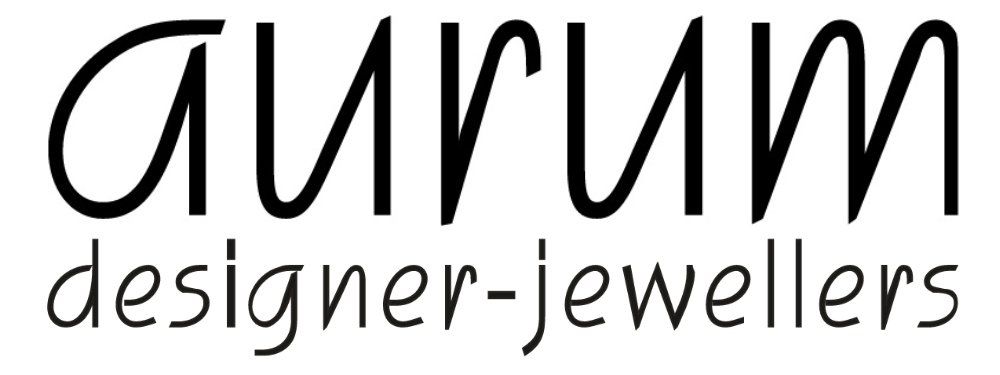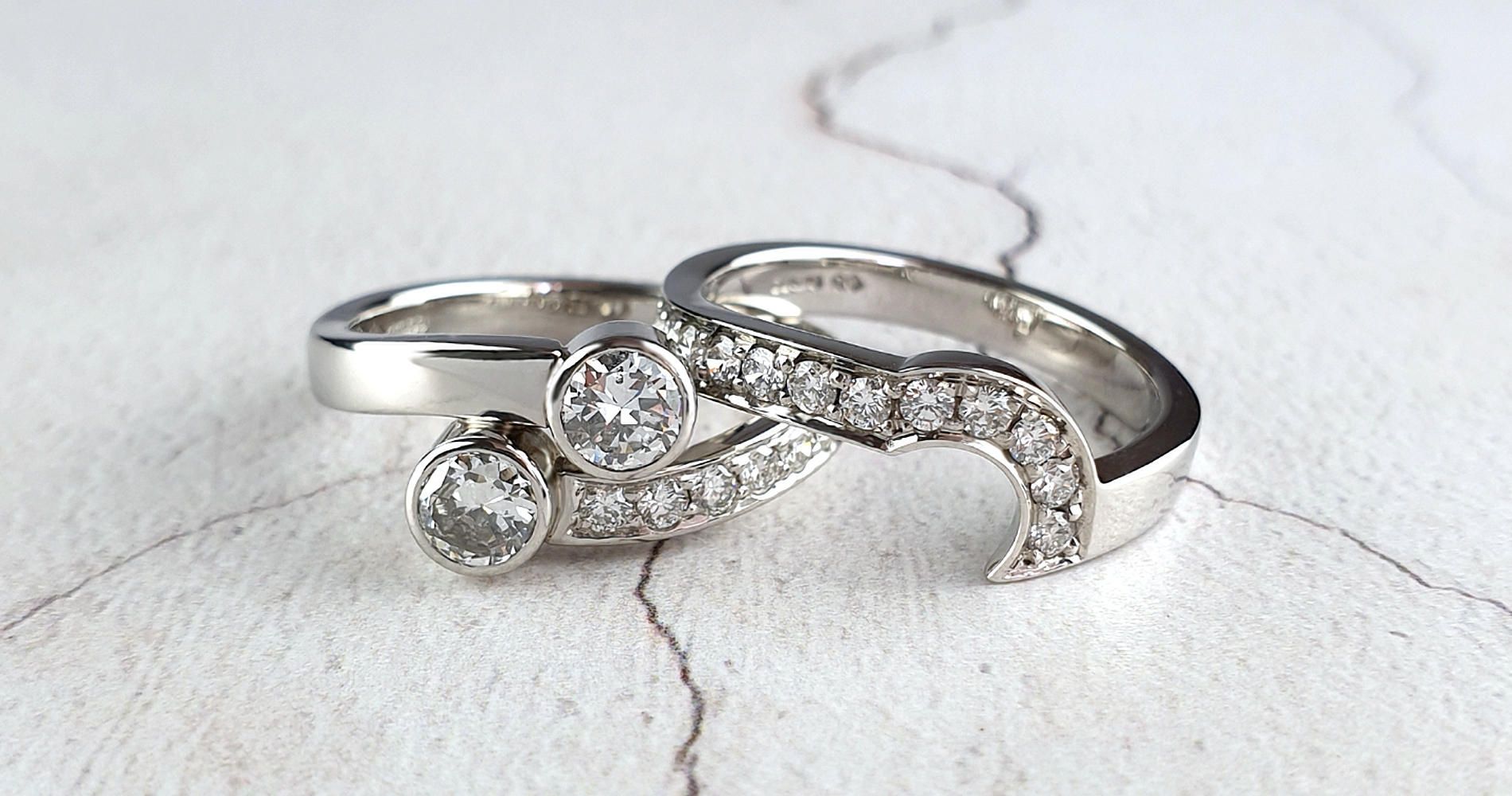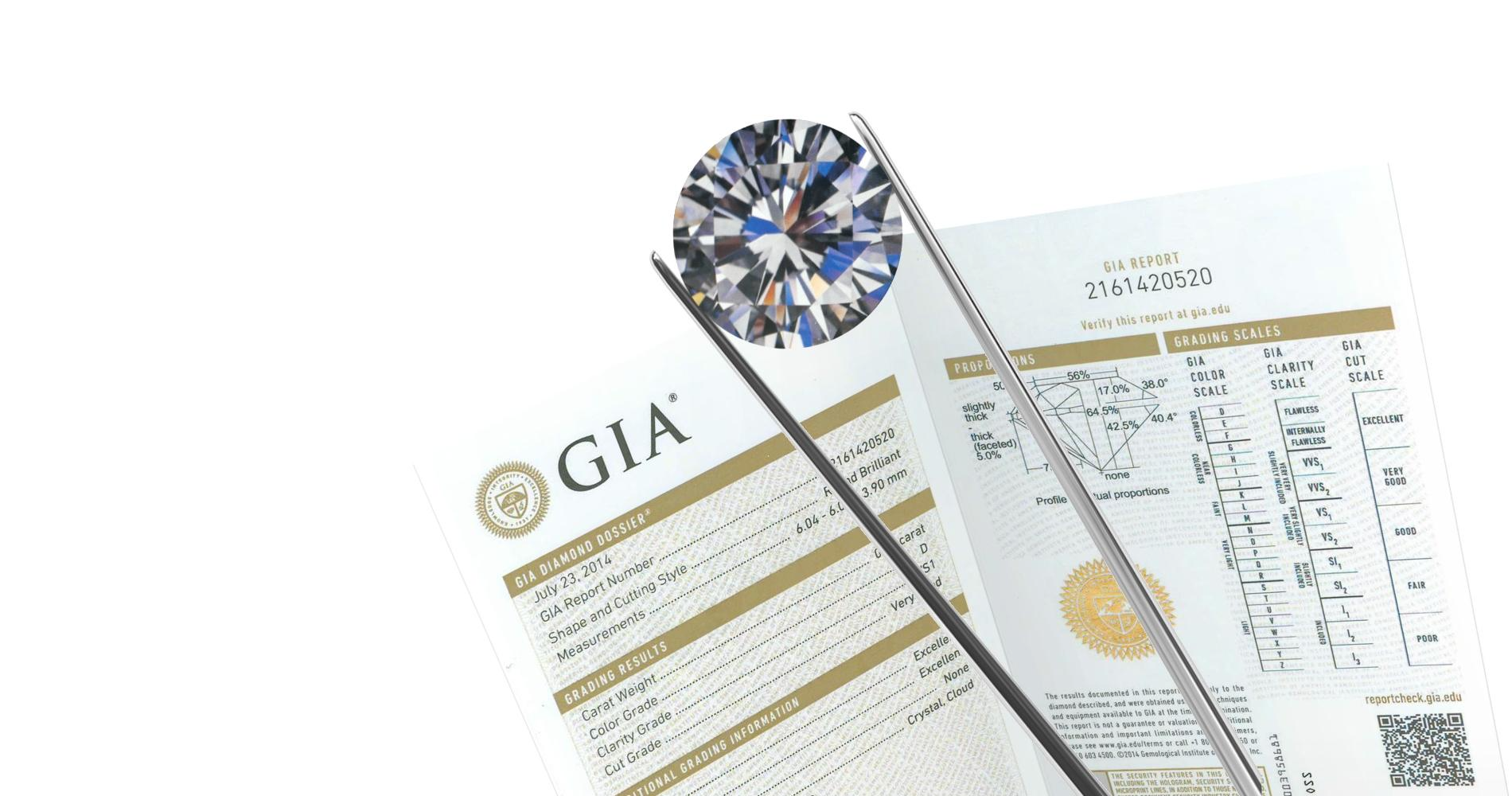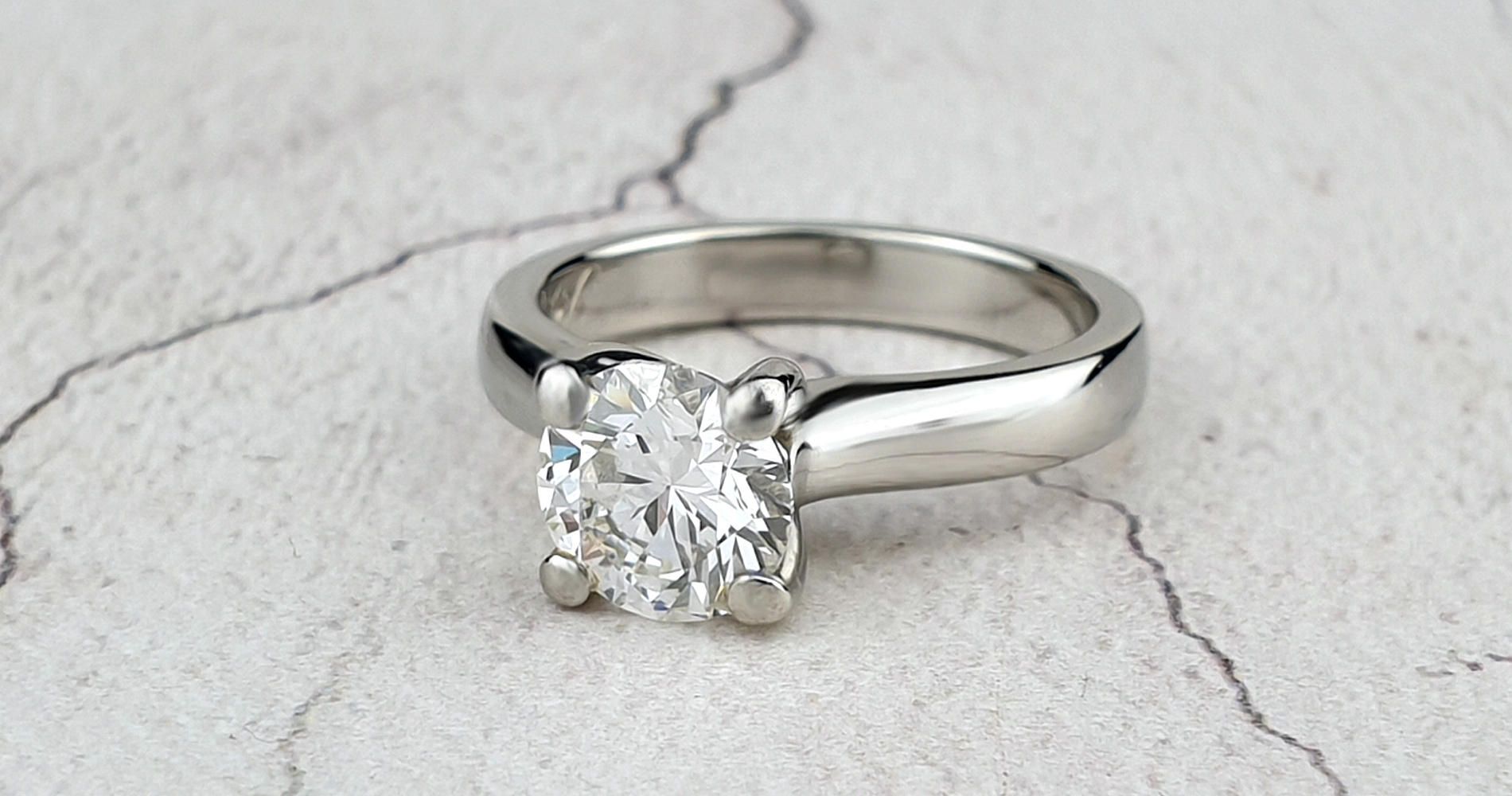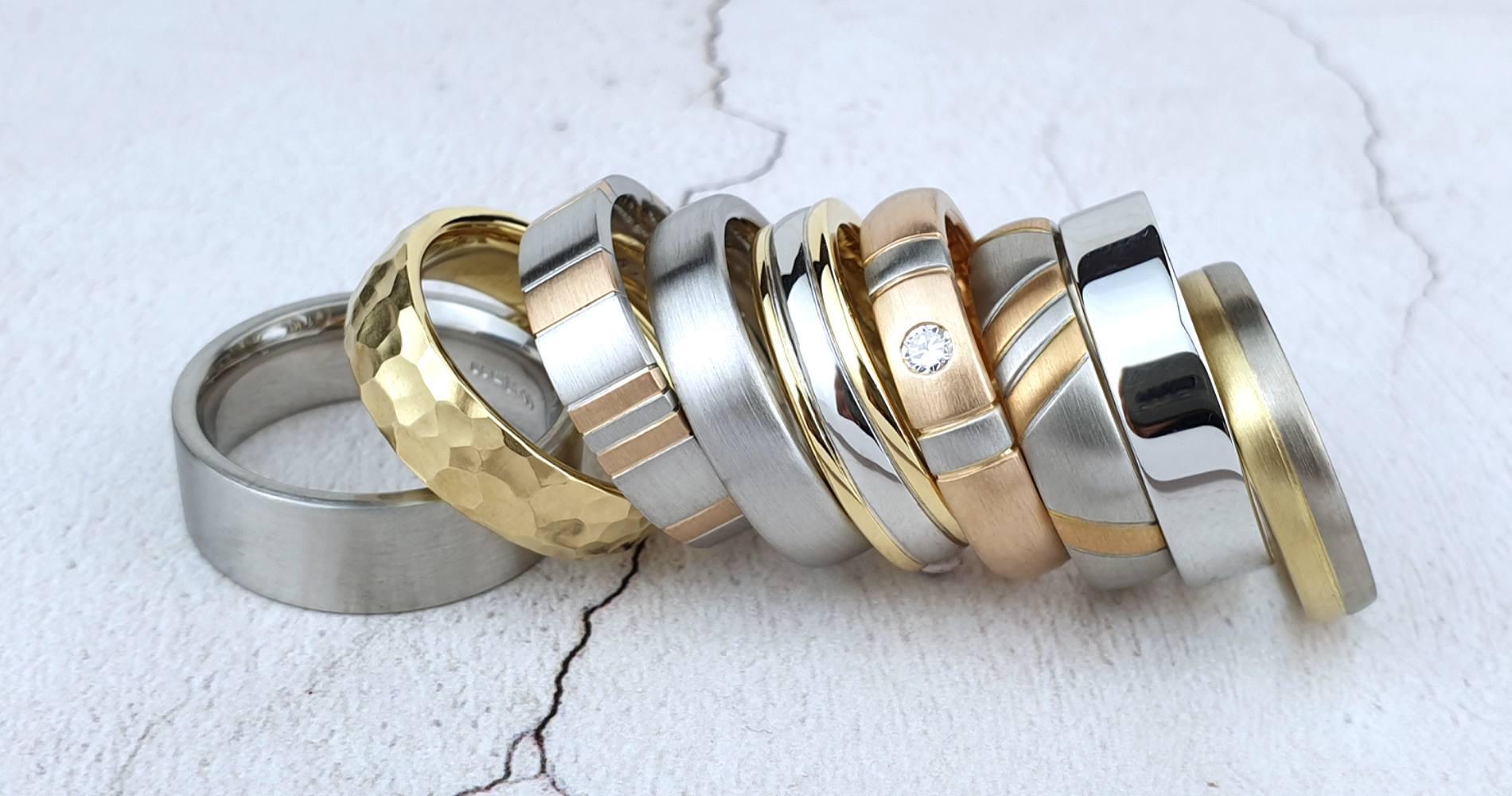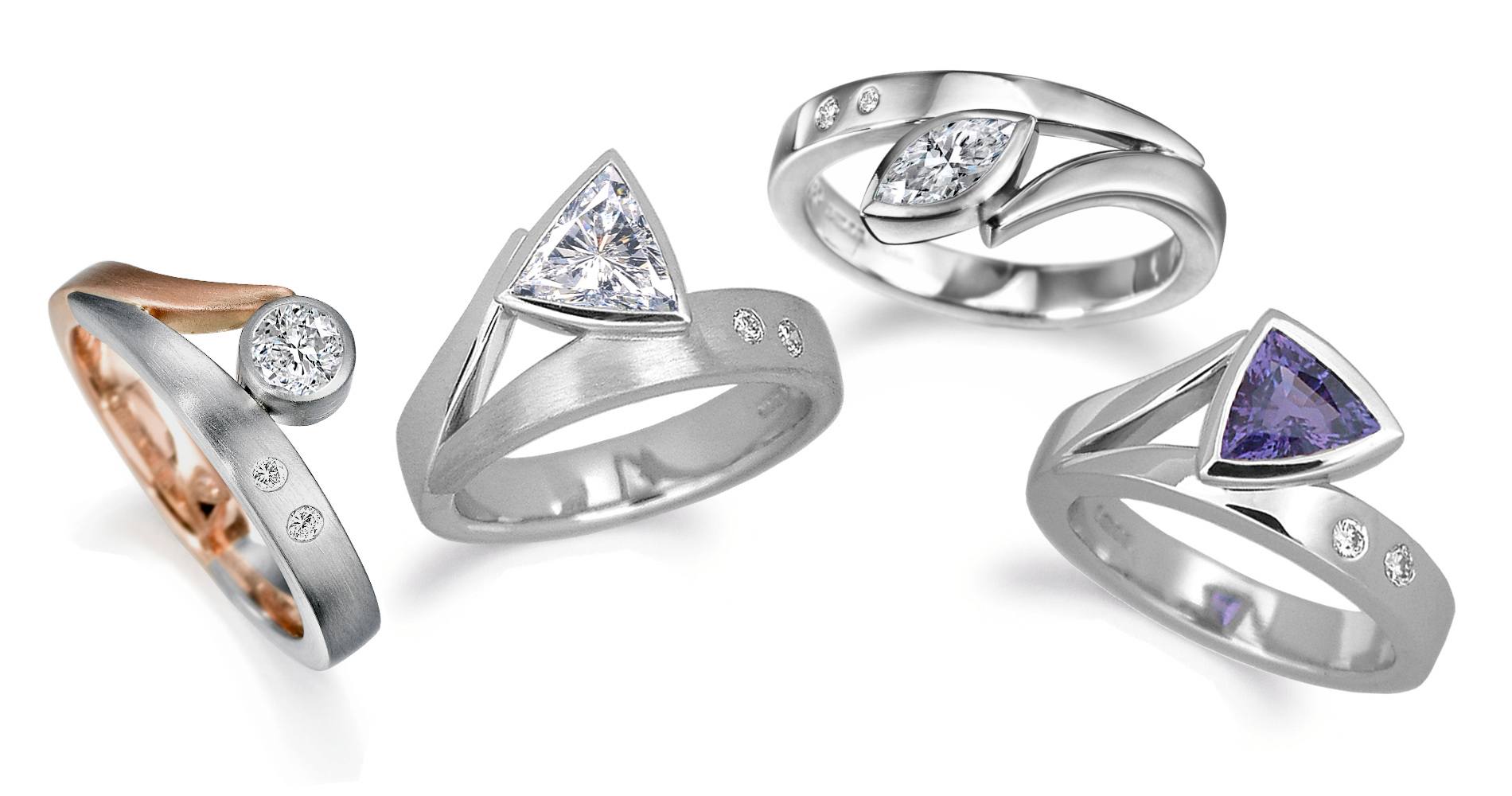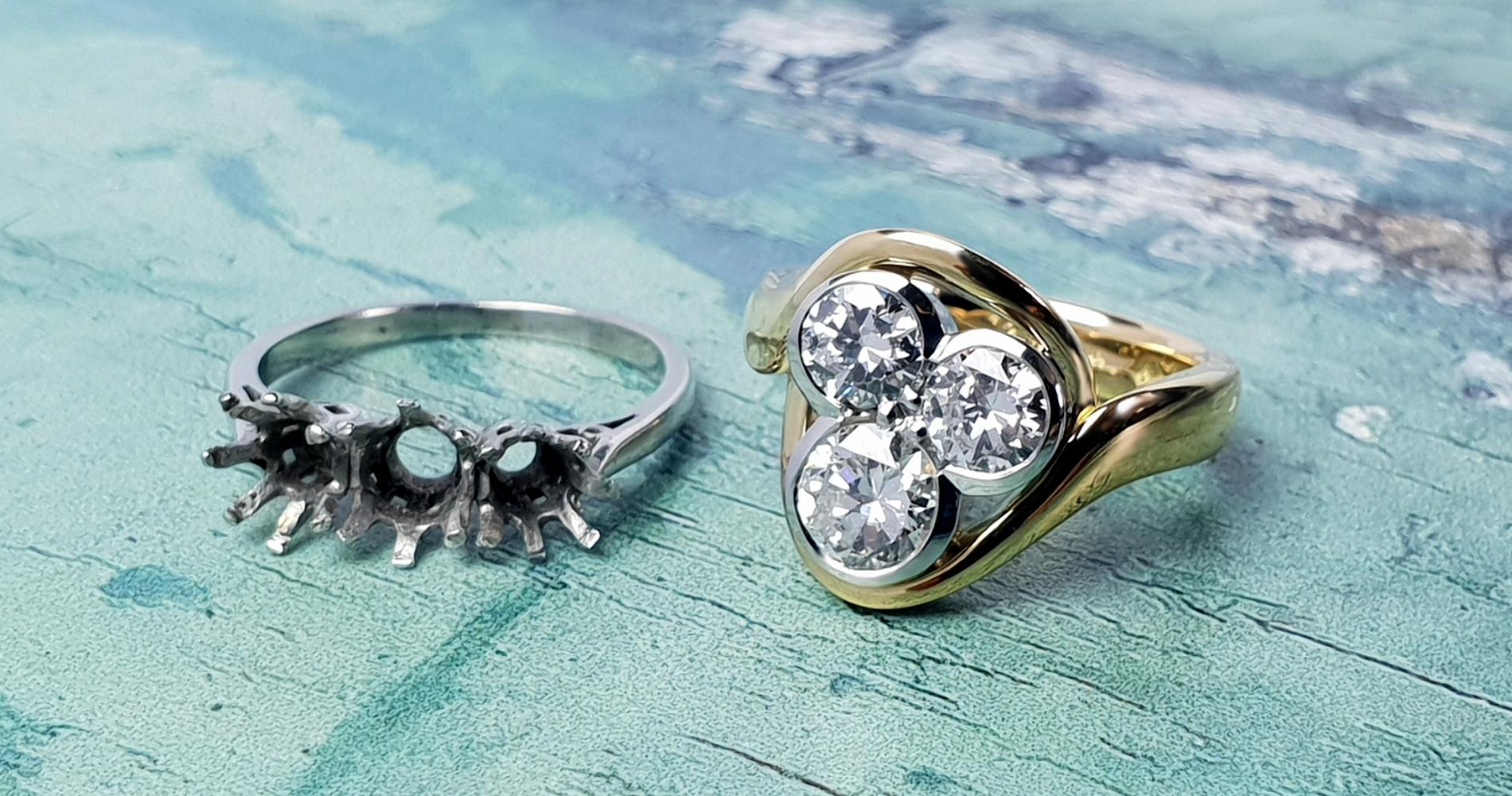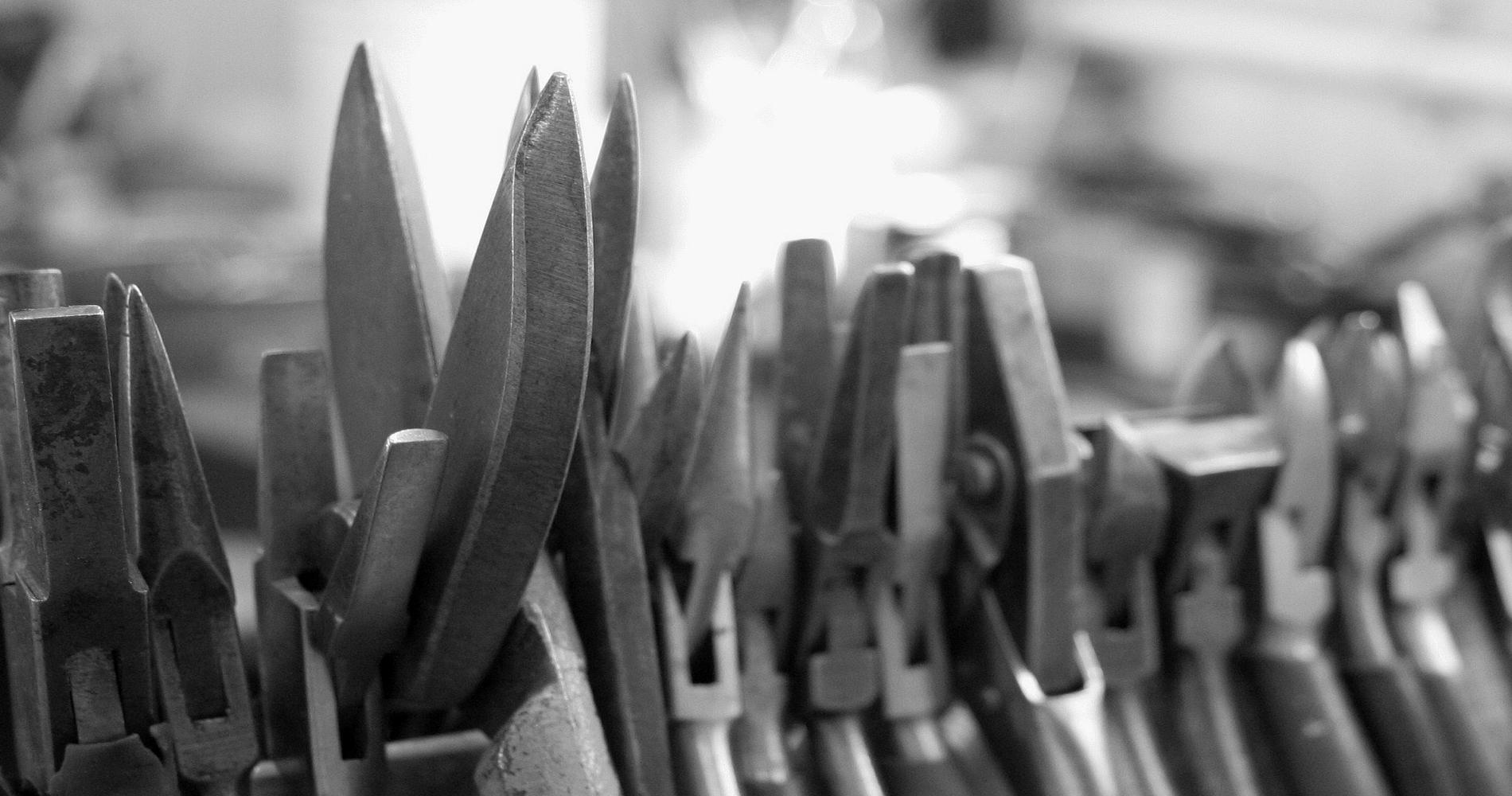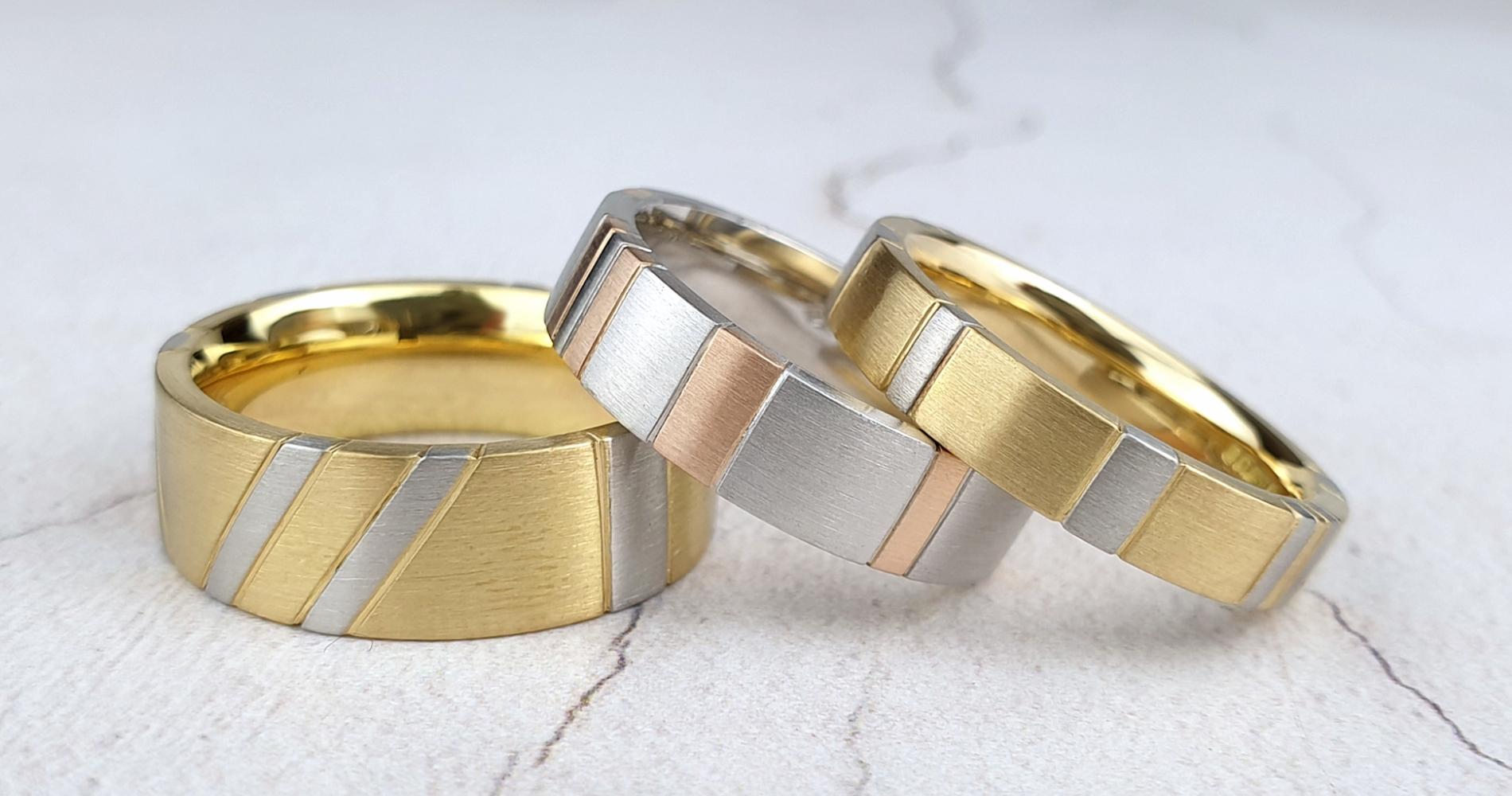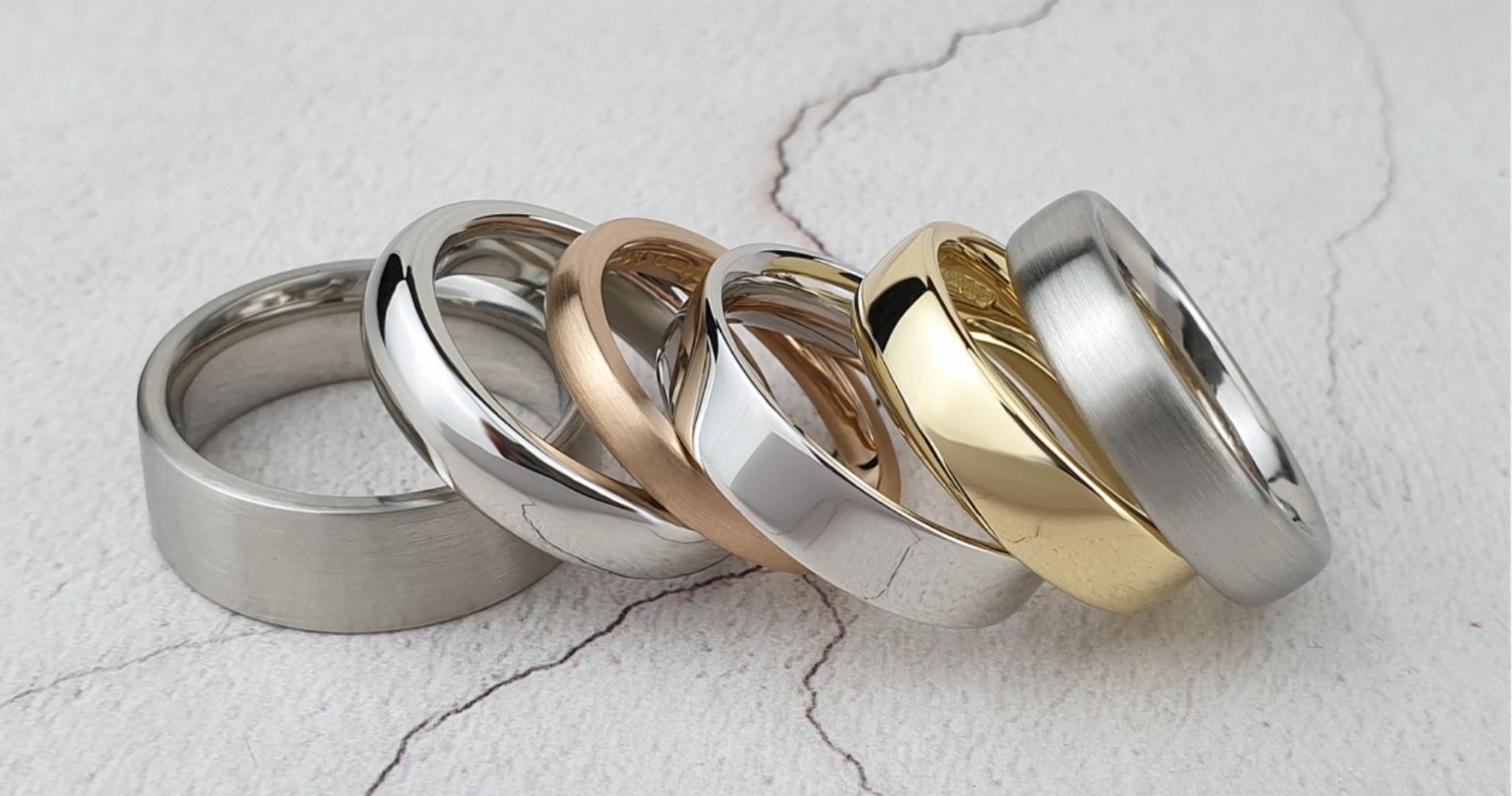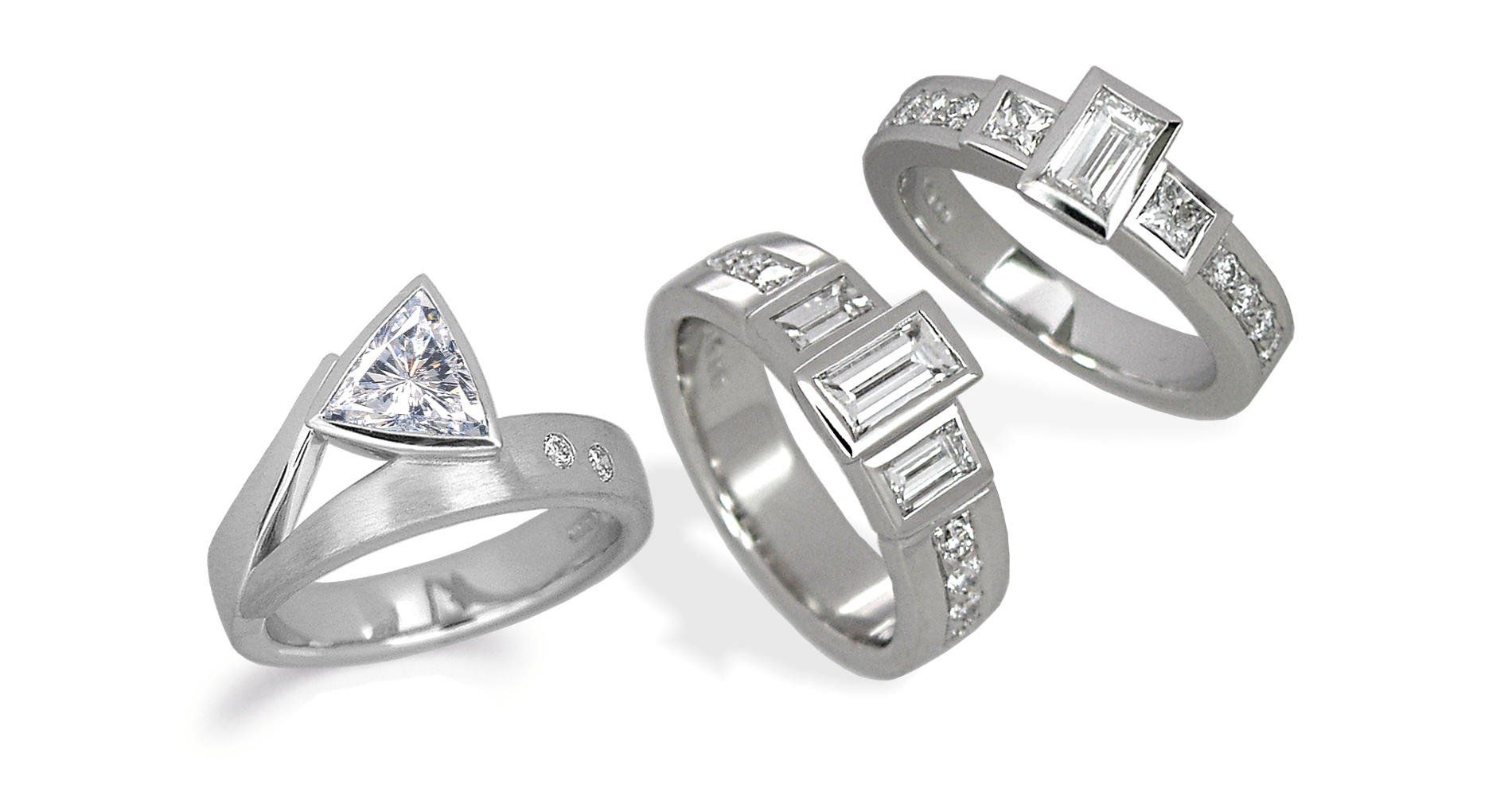Call us on: 01903207944
159 Montague St, Worthing, West Sussex, BN11 3BZ
How to keep your ring looking it's best.
Because we specialise in creating custom-made engagement rings, clients often ask us for tips on how to look after their ring.
The following advice should help ensure that you keep your ring looking its best, and avoid damage that could drastically affect its value.
Preventing damage to your ring
Precious metals and gemstones can be scratched by coming into contact with hard materials and rough surfaces.
For this reason we advise that you do not wear rings in any situation where they will come into contact with anything hard or abrasive. This includes activities like housework, gardening, DIY, working on car engines, going to the gym, (especially using free weights!).
Be aware that many things can cause damage. For example, if you need to hold a metal handrail, do so in such a way that your ring is not squeezed against it. Some cleaning products (like bathroom cleaners) contain abrasives, which will dull gold or platinum. Wear rubber gloves, or better still, don't wear your ring when doing housework.
If you are wearing rings on both hands, try to avoid clapping. Bringing your hands together with considerable force can completely wreck one or both rings. Metal can be dented and stones shattered. My advice is that when going to a performance where you will be applauding, wear rings on one hand only. – Alternatively, make sure you clap palm to palm, or the fingers of one hand to the palm of the other. Never clap rings against rings!
Don’t “test your diamond” by seeing whether it will cut glass! Lots of stones will cut glass, so it won’t prove anything, and you just might damage your diamond by doing so.
Storing your ring
When you are not wearing your ring, keep it in the original box, or in a jewellery box with separate slots or compartments.
Alternatively, pop it into a little self-seal polythene bag.
Bear in mind that one piece of jewellery can damage another. This is because the materials from which jewellery is made have different hardnesses.
For the same reason, never tumble your jewellery together in a box. Never put it into a purse or a pocket containing coins!
Cleaning your ring
Like everything else you own, jewellery does need an occasional clean.
Even after 45 years in the jewellery trade, it still amazes me that the majority of people never clean their jewellery!
A ring that is clean looks so much better when it is clean! If you do it regularly, it is a very simple thing to do.
Diamonds have an affinity with grease. Hand-cream, soap, etc. tend to form a greasy film on the surface, that dulls a diamond and stops it sparkling.
Whilst the front of a stone will get “wiped” when you dry your hands, oor when you put your hand into a sleeve, there are inaccessible areas, like the underside of the stone, and between claws, where the stone never gets touched. This is where you’ll get a build-up of grease and dirt.
A regular clean will easily remove the grease and restore the sparkle of your diamond. The longer you leave it between cleans, the harder it will be.
We often see customer’s rings that have not been cleaned for years, where the setting is completely clogged up. Sometimes it’s so hard that even after soaking for hours, we have to pick it out with a pin. (Yuk!)
You don’t need jewellery cleaner. Save your money.
I know that some people use gin for cleaning jewellery. - I suggest you drink your gin, and use soapy water to clean your jewellery!
If it is set with diamond, sapphire, or ruby pop your ring into a small bowl containing hot (but not boiling water), with a good squirt of washing-up liquid.
By the time the solution has cooled enough to put your fingers in and fish out the ring, any grease should have softened, and you can use a small brush to get into all the nooks and crannies, and gently remove the dirt. (I recommend keeping a baby's toothbrush or this purpose.)
Then, just rinse under the hot tap, to remove the cleaning solution. Do this over a bowl, just in case you have loosened a stone. Dry on a paper towel. Your stone should now be sparkling beautifully!
With stones other than diamond, sapphire or ruby, make sure to use warm rather than hot water. With porous stones like Turquoise or opal it is best to avoid immersion in liquid if possible.
Transporting Your Jewellery
Taking your jewellery on holiday? Pack each item separately.
Customers often bring in several items for us to look at, with all of them jangling together in a single box or bag. Never do this! - Not even once!. Just pop each piece into a separate polythene bag.
Occasional Maintenance
The process described above will clean your diamond (or other stones), but it won’t bring back the shine to metal that has been dulled. This is not something you can do at home.
A professional clean and polish
Once a ring has lost it’s shine It will require a professional polish to bring it back. If you look after your ring, and avoid abrasive substances, you might never need this done. - A simple clean will be enough.
If your engagement ring is made from white gold, it will probably need to be replated occasionally. White gold is usually rhodium-plated, and this wears off. Depending on how hard you wear it, your ring might need replating every year, or every few years.
Have it Checked
Have you ring professionally checked over by a jeweller every year or so, to make sure your stone is still secure. Over time, claws can wear, and might eventually need to be re-tipped.
Also, if you accidentally catch your ring on something, have it checked by a jeweller. - If you have damaged or lifted a claw, your stone might have been loosened. Don’t risk wearing the ring until you have been assured that all is well. If there are any potential problems, your jeweller should advise you if any remedial work that is necessary to make it safe to wear.
Insurance
No matter how careful you are with your ring, accidents can happen, so make sure your engagement ring is insured against loss or damage. We strongly advise you take out a specific Jewellery Insurance policy.
As with most things, the price of jewellery tends to rise over time. Your ring should be revalued every few years. It needs to be insured for what it would cost to replace if you lost it now, not for the original purchase price.
When you have your ring valued it will be checked over and professionally cleaned at the same time.
-
Aurum Designer Jewellers Facebook
Aurum Designer Jewellers FacebookAurum Designer Jewellers Facebook
-
Aurum Designer Jewellers Twitter
Aurum Designer Jewellers TwitterAurum Designer Jewellers Twitter
-
Aurum Designer Jewellers Instagram
Aurum Designer Jewellers InstagramAurum Designer Jewellers Instagram
Aurum designer-jewellers, 159 Montague Street, Worthing, West Sussex BN11 3BZ
All Rights Reserved | Aurum designer jewellers | Website by Infoserve | Privacy & Cookie Policy
